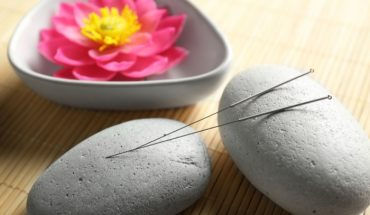Acne is a near-universal skin disease affecting 85 per cent of adolescents world wide as well as older adults.
But although it is ubiquitous, it is a condition that is extremely variable. I don’t think that ‘one-size fits all’ treatments reflect the fact that it is complex condition that requires a tailor-made approach.
As a consultant dermatologist who works both in the UK and the US, I see young people and men and women who have moderate to severe chronic acne which requires bespoke solutions to reduce and symptoms, which can include infected spots, reddened skin and blemishes, but is never exactly the same in any two individuals. Triggers can be wide range of things including diet, stress, hormone imbalance or even friction from clothing. The best approach is usually a combination of treatments that are carefully considered and constantly evaluated.
Acne vulgaris is not a minor problem. For many people, it blights their lives and causes them to feel socially isolated. In the long term, severe acne can leave behind permanent scarring. Fortunately, we have many tools at our disposal to help people with acne that is causing them significant issues. We look at every person as a unique case and treat accordingly. We have specialist tools which are not generally available in pharmacies or doctors surgeries including pulsed light therapy and laser treatments. Of course, as consultant dermatologists, we are also able to prescribe a full range of medicines including courses of antibiotics and Roaccutane, which should only be used when other treatments have not been effective, in a carefully selected group of patients.
In an ideal world, more patients with significant acne would come to see dermatologists who are skilled at treating this condition.
However, in the UK, the vast majority of people with acne never see a dermatologist at all. Instead, they go to the pharmacy and get one of many OTC treatments, advised by the pharmacist. For most, with minor blemishes and irritation, these treatments will be sufficient, until the acne simply goes away. However, a lot of OTC products are not particularly effective and some may actually lead to more redness, burning and pain. Around half of people who have acne also have sensitive skin so products containing high-strength salicylic acid and astringents to dry out the skin will simply make their skin more painful and inflamed.
A few OTC products are formulated to be better tolerated by sensitive skin, but not many.
It is actually a misconception that you need to ‘dry out’ the skin to get rid of acne. These treatments do not change the fact that sebaceous glands under the skin are still producing excess oil. The surface layer of skin may be dry to the point of damage, but the underlying problem remains.
A smaller group of people with acne do visit their GP, and many GPs do prescribe oral antibiotics when appropriate and topical creams which are only available on prescription. But not all GPs have training in skin diseases and it is important that they refer to specialists if a patient is not responding to first line treatment in primary care. This can be done through the NHS, if someone has persistent severe acne. Otherwise, anyone can now refer themselves directly to a dermatologist as a private patient.
Not everyone with acne needs to see a dermatologist but many people could gain life-changing results if they chose their skin specialist like they chose their dentist or eye doctor – with care.
- Treat sunshine with caution - 24th April 2018
- Beautifully handed - 14th April 2016
- Acne sufferers need tailor-made solutions - 19th March 2016







